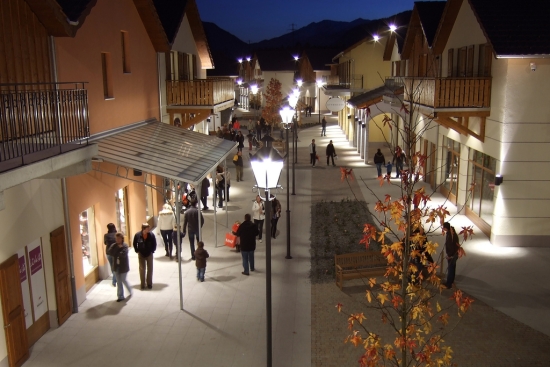Although online shopping has become a huge part of the retail industry, recent moves to save the high street have meant that a growing number of consumers are once more turning to the traditional bricks and mortar stores which still play a role in community life. This has led a number of e-tailers to consider their future business options with regards to the commercial property market in a bid to continue expanding their customer base.

The trend, which has coined the phrases “clicks to bricks” or e-tail to retail”, came to prominence after a recent survey of shopping habits among USA 18-25 year olds indicated that 68 per cent of respondents preferred to shop in an actual store when looking to purchase clothing or shoes. This survey, conducted by LIM College and the National Retail Federation, found that consumers still desire the ability to try on products before purchasing – something which online stores simply cannot offer their customers.
Nicole Flasch-Mihalko, one of the head researchers, told the BBC; “Retail observers have been significantly overestimating our use of online and digital technology for shopping. We like shopping in stores.”
Luxury brands in particular are finding the ability to physically interact with customers to be valuable in lifting sales figures, with a number of jewellery e-tailers choosing to move into pop-up shops or vacant high street units. Yet this is not the only commercial property avenue available to high end retailers, as jewellery brand Astley Clarke has proven.
Founder and chief executive Bec Clarke first gained a solid customer base using the company’s website, but has chosen to expand her business via a showroom based at the brand’s London headquarters. She has also managed to secure deals with UK department stores with the aim of opening concessionary space nationwide, and is now looking to do the same thing in the United States.
Ms Clarke believes that this multi-channel approach will yield the greatest results for her business.
She says; “There’s a long consideration process to buying jewellery – it’s a whole journey of trying on and thinking about it and trying on again, and we have to allow the customer to go on that journey.
“It’s also important for our bespoke service – clients like to see and touch the gemstones.
“The heart of our business is online, but we have a ‘channel agnostic’ approach, which is where the world is moving to.”
Just as high street retailers have been forced to adapt to the encroachment of the internet into the retail industry, by introducing click and collect services for example, so to do e-tailers have to consider the advantages traditional retailing can offer. By striking a balance between the old and the new, the traditional and the technological, the retail industry will be strengthened in the long term and so too will the business owners of the UK.
Do you think the ideal balance is 50 per cent retail and 50 per cent e-tail, or is this balance dependent on the category, such as electronics or clothing, in which the business operates?